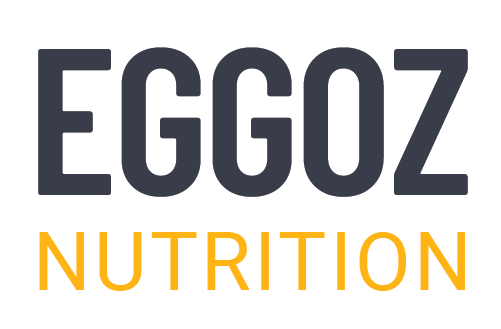Hey, have you heard of serotonin?
It's a feel-good chemical in our brain that keeps us feeling good and balanced. It's like the brain's little helper, controlling stuff like our mood, sleep, appetite, and digestion. But when our serotonin levels are imbalanced, we might start feeling a bit down or anxious. Think of it as our brain's built-in mood stabiliser!
Why is serotonin necessary?
Serotonin is necessary for several reasons:
- Regulating Mood: Known as the "feel-good" hormone, serotonin actively regulates mood, promoting feelings of happiness, contentment, and overall well-being.
- Regulating Sleep: It plays a crucial role in regulating sleep cycles, promoting restful sleep by regulating sleep stages and influencing the timing of sleep onset and duration.
- Controlling Appetite: Serotonin actively regulates appetite and satiety, influencing food intake by signalling feelings of fullness and satisfaction, Xwhich helps prevent overeating and supports healthy weight management.
- Facilitating Digestion: It also regulates gut motility and function in the gastrointestinal tract, coordinating the movement of food through the digestive system and promoting overall digestive health.
- Supporting Cognitive Function: Additionally, serotonin participates in various cognitive functions, including memory, learning, and decision-making, and may also play a role in regulating attention and impulse control.
How does serotonin work in the brain?
- Serotonin is produced in the brain from the amino acid tryptophan found in food.
- It travels between nerve cells to transmit messages.
- When released, serotonin binds to receptors on other nerve cells, influencing mood and emotion.
- This neurotransmitter helps regulate feelings of happiness and well-being.
- Additionally, serotonin plays a role in controlling sleep, appetite, and other bodily functions.
- Imbalances in serotonin levels can contribute to mood disorders such as depression and anxiety.
- Overall, serotonin is vital for brain function and emotional health.
How do you know if your serotonin levels are low?
You might notice a few signs:
- Feeling down or sad more often than usual.
- Difficulty sleeping or experiencing poor sleep quality.
- Changes in appetite, such as increased cravings for carbs or sweets.
- Feeling irritable, anxious, or easily stressed.
- Low energy levels and fatigue.
- Trouble concentrating or experiencing brain fog.
- Digestive issues like bloating or constipation.
What types of foods boost serotonin?
- Foods rich in tryptophan: Tryptophan, an amino acid, acts as a precursor to serotonin. Consuming foods high in tryptophan provides your body with the necessary building blocks for serotonin production. These foods include turkey, chicken, eggs, cheese, tofu, nuts, seeds, and soy products.
- Complex carbohydrates: Complex carbs promote serotonin levels by aiding in the absorption of tryptophan in the brain. Good sources of complex carbs include oats, brown rice, quinoa, and whole wheat bread.
- Omega-3 fatty acids: Omega-3s are involved in serotonin synthesis and function. Including sources of omega-3 fatty acids in your diet, such as fatty fish like salmon, mackerel, and trout, as well as walnuts, flaxseeds, and chia seeds, can support healthy serotonin levels.
- Colourful fruits and vegetables: Fruits and vegetables are rich in vitamins and minerals that support overall health, including serotonin production and function. Include a variety of colourful fruits and veggies like bananas, pineapple, spinach, kale, and tomatoes in your diet.
- Dark chocolate: Dark chocolate contains antioxidants and flavonoids that can improve mood and boost serotonin levels. Enjoying a small amount of dark chocolate as part of a balanced diet may offer additional benefits for serotonin production.
Does vitamin D produce serotonin?
Definitely! Vitamin D does indeed contribute to serotonin production. You know that feeling when sunlight touches your skin? Well, that's how you absorb vitamin D! Then, enzymes in your brain use that vitamin D to convert tryptophan into serotonin. So, catching some rays isn't just great for your tan; it's also a mood-booster!
Do eggs increase serotonin levels?
Research suggests that eggs contain tryptophan, a building block for serotonin, the "feel-good" hormone in our brains. While there's still more to learn, some studies show that consuming eggs, with their tryptophan content, may help boost serotonin levels. In fact, a 2015 study found that even a small amount of egg protein could improve mood in certain groups of people. So, while it's not a guaranteed serotonin boost, including eggs in your diet might just give your mood a little lift!
Last but not least:
In summary, maintaining optimal serotonin levels is essential for emotional well-being. Incorporating serotonin-boosting foods like those rich in tryptophan, complex carbohydrates, omega-3 fatty acids, fruits, vegetables, and dark chocolate can support serotonin production. While vitamin D plays a role in serotonin synthesis, sunlight exposure is key for its activation. Or you can add eggs to your regular diet that’ll help to boost serotonin levels. You can buy farm-fresh eggs online from Eggoz Nutrition. By making informed dietary choices and leading a healthy lifestyle, we can promote mental wellness.


